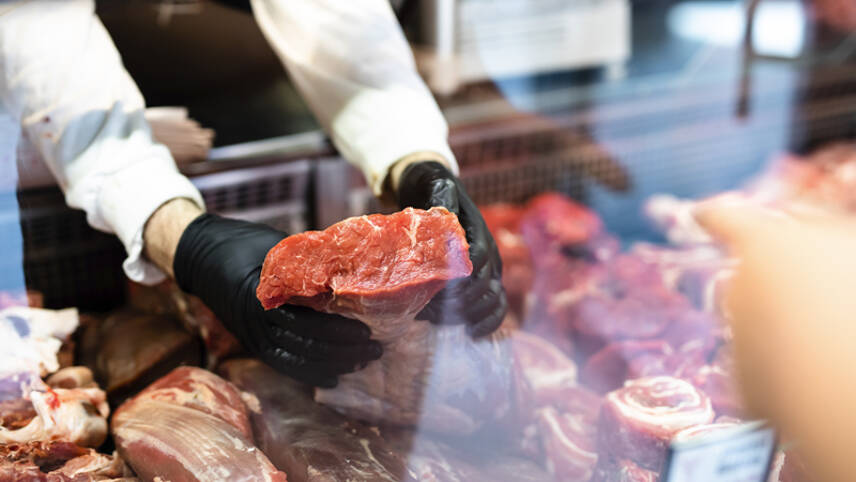This premium content is exclusive to edie Members.
To find out more about edie Membership, please click below.
If you are an existing member, login here

Food systems currently account for around one-third of annual global greenhouse gas emissions resulting from human activity. The World Bank this week published a landmark new ‘Recipe for a Liveable Planet’ – a blueprint outlining how these emissions can be cut by one-third.
While this will be no mean feat, the report emphasises that these emissions reductions can be delivered while maintaining food security and farmer livelihoods, plus also boosting public health and biodiversity.
A key ingredient in the recipe is the reform of food subsidies, particularly in high-income countries. The World Bank would like to see subsidies shifted away from the production of meat and dairy products, which account for almost 60% of food emissions, towards lower-carbon alternatives.
The World Bank is also urging middle-income and low-income nations to “chart a different path forward” and avoid subsidising destructive farming methods as they strive to scale food production to foster economic growth.
More than $500bn is spent each year on agrifood subsidies globally, per the World Bank’s estimates. The organisation has called many of these subsidies “wasteful”, especially in high-income nations. It believes that the allocation of $260bn per year to the transition in agriculture would be sufficient and highlights that private finance can and should support public investment.
In wealthy nations like the UK and EU member states, the World Bank argues, meat and dairy subsidies are keeping costs artificially low. “The full cost pricing of animal-sourced food to reflect its true planetary costs would make low-emission food options more competitive,” the report states.
The World Bank blueprint does acknowledge that the emissions footprint of meat and dairy depends heavily on factors such as production location and product type. But, in the main, these products are badged as high-carbon, and a shift towards diets based on plant proteins are hailed as an effective way to cut food systems emissions.
Hundreds of nations have already pledged to reform or remove at least $500bn of subsidies that support nature-harming activities each year this decade. This commitment was made in late 2022 through the Biodiversity Treaty.
Yet the World Bank’s recommendations are likely to prove challenging to implement politically.
Right-leaning governments including the UK’s current administration are loathe to be seen as telling citizens which lifestyle choices, including dietary choices, they should make. Western Governments are also scrambling to appease protesting farmers who see increased environmental requirements and subsidy shifts as a threat to their livelihoods.
These factors are layered atop the ways in which food businesses are enshrined with policymaking through lobbying.
The World Bank’s global engagement manager for food and agriculture, Julian Lampietti, has recommended that the narrative is reframed to emphasise what farmers and the general public should be doing, rather than what they should be avoiding.
There is also a need to remind people of what is at stake without significant systemic change, in terms of risks to future food security from climate-linked extreme weather and from soil depletion.
The private finance piece
Recent UN analysis revealed that almost $7trn of finance flows, each year, to activities with a direct negative impact on nature. This includes land clearance for food production.
The majority of this funding, around $5trn, comes from private sources.
Environmental campaign group Feedback has stated that, unless Governments signal a shift in public funding first, banks and investors are unlikely to act.
The organisation claimed earlier this year that private financiers have collectively funnelled $615bn into the world’s 55 largest industrial livestock producers since the end of 2015, with annual funding levels having increased since 2018.
Feedback has argued that engagement with industrial meat producers is “not viable” because they are “hard-wired” to attempt to grow their sales.
It notes a fivefold increase in global meat production between 1961 and 2021. In this time period, the global population grew from around three billion people to 7.8 billion, meaning that meat production increased far more steeply than needed to feed a growing population.
Many of the 55 firms assessed, including JBS, have stated that they are working to bring about further significant increases in global animal protein supply and demand through to 2050 through business plan filings and risk assessment docusments.
“Banks and investors claim that by maintaining finance to polluting companies they can engage with them to improve their practices – this is delusion, or greenwash, or both,” said Feedback’s senior policy and campaigns manager Martin Bowman.
There are numerous platforms through which investors can ask firms for greater environmental disclosures and stronger climate plans. A food-specific entity of this kind is FAIRR, while CDP facilitates this engagement on a pan-industry basis.


Please login or Register to leave a comment.